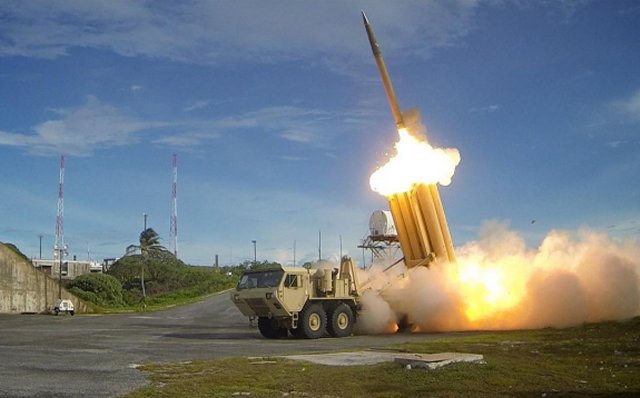Breaking news
THAAD System Intercepts Target Missile Defense Flight Test.
| 2017
|
|
|||
|
Defense & Security News - Lockheed Martin
|
|||
|
|
|||
|
THAAD System Intercepts Target in Major Missile Defense Flight Test
|
|||
|
The Lockheed Martin built Terminal High Altitude Area Defense (THAAD) system successfully intercepted a target today in a missile defense test led by the U.S. Missile Defense Agency with critical support provided by the U.S. Army.
|
|||
|
|
|||
 A Terminal High Altitude Area Defense interceptor being fired during an exercise (Photo US Army) A Terminal High Altitude Area Defense interceptor being fired during an exercise (Photo US Army) |
|||
|
|
|||
|
The THAAD system, located at Pacific Spaceport Complex Alaska in Kodiak, Alaska, detected, tracked and intercepted a threat representative intermediate-range ballistic missile (IRBM) target. The test was the first IRBM intercept for THAAD.
During the test, designated Flight Test THAAD (FTT)-18, the THAAD radar first detected, acquired and tracked the target. The THAAD system then developed a fire control solution and launched an interceptor that destroyed the target's reentry vehicle with sheer force of a direct collision. "Our THAAD system performed flawlessly in today's test and we are proud to support the Missile Defense Agency and U.S. Army as they demonstrate the system's unmatched capabilities," said Richard McDaniel, vice president of Upper Tier Integrated Air and Missile Defense Systems at Lockheed Martin. "With this successful test, the THAAD system continues to prove its ability to intercept and destroy many classes of the ballistic missile threat to protect citizens, deployed forces, allies and international partners around the globe." This was the 14th successful intercept in 14 attempts for the THAAD system since 2005. The THAAD system uses hit-to-kill technology to destroy a threat with direct impact to neutralize lethal threats before they reach protected assets on the ground. The system is rapidly deployable, mobile and also interoperable with other Ballistic Missile Defense System (BMDS) elements, including Patriot/PAC-3, Aegis, forward-based sensors and the Command, Control, Battle Management and Communications system. |
|||



















